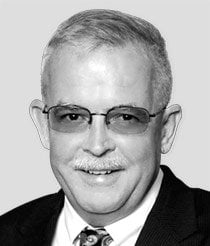I've seen some spectacular failures come from folks who chased a dollar here, a stock or a trade there. And I've seen retirees fall irreparably - tragically - behind the curve waiting around for profits that aren't coming.
On the other hand, the patient, smart money, which moves aggressively when the opportunity for unreasonably good prices, or unreasonably high returns, arises, usually enjoys profits measured in multiples, not percentages.
I've had a perfect track record investing with the patient, smart money.
The best part is, they even tell you up front what they're doing, and where they're looking for the next unreasonably great opportunity.
In this case, it's clear across the Pacific Ocean. Here's what I mean.
[mmpazkzone name="in-story" network="9794" site="307044" id="137008" type="4"]
The Smart Money Makes It Easy
Some of the best, most successful investors on Earth talk quite freely about what they're doing on their quarterly earnings calls and in press appearances.
Most of their deals are widely reported in the press, so it's pretty easy to follow them once you know what you are looking for and where to find it.
TOP PERFORMANCE: This man showed his paid-up subscribers 589.63% in total winning moves, closed over just five days in January. And he's offering a stunning performance guarantee for those who get in now. Click here...
KKR & Co. LP (NYSE: KKR) make it even easier than that.
 Their head macro guy, Henry McVey, publishes his comments and research on their blog so we can see their roadmap for the next few years. I have been using McVey's macro roadmap as part of my investing process with a great deal of success in recent years, as his firm's global presence and deep research abilities give him strong insights into how money is flowing around the world.
Their head macro guy, Henry McVey, publishes his comments and research on their blog so we can see their roadmap for the next few years. I have been using McVey's macro roadmap as part of my investing process with a great deal of success in recent years, as his firm's global presence and deep research abilities give him strong insights into how money is flowing around the world.
KKR has been around for 42 years, and their funds have returned an average of 25.6%. $1 invested with them at the beginning would have grown to $14,373 today. Following their macro suggestions is akin to having Sandy Koufax as your pitching coach. It may not guarantee success, but it sure is a good start down the path to winning.
McVey published a report last week outlining KKR's view of the year ahead - Diverging Paths.
He makes a case for moving away from U.S. stocks and bonds and into Asia and Europe. While the firm thinks that tax reform is good for the bottom line here in the United States, they also think that that gain is baked into current equity market valuations.
They also think that strong earnings growth and continued economic strength could lead the U.S. Federal Reserve to take more aggressive action with interest rate policy. KKR now forecasts that the Fed will hike rates six times between now and the end of 2019.
Remember - most market watchers expect just four hikes over that time. Six could be a rough sledding for unwary traders and investors.
McVey also notes that, while the Fed is looking to tighten policy and shrink its balance sheet, the European Central Bank is still growing their balance sheet.
The ECB deposit rate is still negative and probably will be until sometime in 2019. Regarding policy and conditions, Europe looks a lot like the United States did back in 2013, which is to say: loaded with double-digit upside.
U.S. stocks have averaged a healthy 12% return since the start of 2013, and investors using the smart-patient-aggressive mindset have done much, much better than that.
The "smart money" operations at KKR reaped market-crushing returns of 34% in 2017 alone, while Leon Black at Apollo Global Management LLC (NYSE: APO) announced on a recent conference call that Apollo's own flagship "smart money" fund was raking it in to the tune of 33% annually.
The Land of the Rising Returns
The smart money right now is looking hard at Asia, and McVey is no exception. He's found Japan is still (as always) in a stimulative phase.
If we do get a global economic expansion and reflation of asset values, Japanese equities should offer fantastic returns. 
Bank of Japan Governor "Helicopter" Haruhiko Kuroda has been appointed to another term, and that should help assure quantitative easing and other fiscal stimulus measures remain in place. It helps that Japanese stocks are undervalued compared to the U.S. and other developing markets.
KKR believes that China has already seen a GDP crash; nominal GDP growth there declined by 67% between 2011 and 2015. China has also taken capacity out of many older, cyclical industries, and that should pave the way for higher profit growth going forward. This drive to increase industrial production is going to spill over into other Asian and emerging economies and provide fuel for higher growth throughout the region.
The report notes that investing in Europe and Asia can also allow investors to capitalize on two of KKRs major macro themes.
These Trends Have Unreasonably High Profit Potential
The first... just rolls off the tongue - something KKR calls "deconglomeratization."
Of course, we've seen this in the United States for some time; corporations have been slimming down and cutting costs.
The Road to Millions Starts Here: All you need is a computer or smartphone and just 10 minutes of "work" to potentially put $1 million in your bank account faster than you ever dreamed. Read more...
Now, activist investors are a big part of the deconglomeratization trend, and we're now seeing activist funds become busier in both Europe and Asia.
Global returns on capital have been slipping, with Europe being the worst, and activists and other institutional investors are pushing for higher returns.
The way the activists see it, and the way I see it, many of these companies have too many subsidiaries, and selling them off is one way of refocusing the core business. We're already seeing signs of them as the number of corporate spin-off announcements in Europe is at the highest level since 2008.
"Experiences over Things" is another big macro trend that KKR favors. It is as big, if not bigger, in Europe and Asia as it has been in the United States the past few years.
Health, wellness, entertainment, and travel are at the top of consumers' minds as well as their budgets. That should create a very investable trend in both regions.
In China, the millennial generation is spending three times as much of their income on leisure as their parents and grandparents did. Experiences over things have paid off big here at home as companies like Netflix Inc. (Nasdaq: NFLX) and Priceline parent Booking Holdings Inc. (Nasdaq: BKNG) have exploded because they sold experiences consumers wanted, rather than just things they needed.
Nice work if you can get it.
The bottom line: Some very very smart, very very rich individuals think a more aggressive Fed will put the brakes on U.S. stocks. At the same time, Europe and Asia have economies and stock markets that look a helluva lot like ours did four years ago.
Investors did well owning U.S. equities over that timeframe, and investors applying the "smart-money" mindset to invest in U.S. stocks have done even better.
With Diverging Paths, KKR is showing us that we don't have to sit around and be content with ho-hum returns as the U.S. cools down. We can follow them east and leverage their 42-year track record of unreasonably good returns for our own benefit.
Up Next: Each of These Big Eruptions Was Spotted 48 Hours in Advance
Chris Johnson's "price eruption" recommendations are off to an incredible start this year: 153.59% with FCAU on Jan. 8... 56.70% with ADBE on Jan. 8... 102.78% with OZRK on Jan. 11... and then an additional 276.47% on FCAU on Jan. 12.
That's 589.63% total winning moves in just five days! Right now, he's tracking dozens of opportunities that could uncover serious cash - fast. And he's offering a stunning performance guarantee, too. Click here to learn more...
Follow Money Morning on Twitter @moneymorning, Facebook, and LinkedIn.
About the Author
Tim Melvin is an unlikely investment expert by any measure. Raised in the "projects" of Baltimore by a single mother, he never attended college and started out as a door-to-door vacuum salesman. But he knew the real money was in the stock market, so he set sights on investing - and by sheer force of determination, he eventually became a financial advisor to millionaires. Today, after 30 years of managing money for some of the wealthiest people in the world, he draws on his experience to help investors find "unreasonably good" bargain stocks, multiply profits, and build their nest eggs. Tim tirelessly works to find overlooked "hidden gems" in the stock market, drawing on the research of legendary investors like Benjamin Graham, Walter Schloss, and Marty Whitman. He has written and lectured extensively on the markets, with work appearing on Benzinga, Real Money, Daily Speculations, and more. He has published several books in the "Little Book of" Investment Series and a "Junior Chamber Course" geared towards young adults that teaches Graham's principles and techniques to a new generation of investors. Today, he serves as the Special Situations Strategist at Money Morning and the editor of Peak Yield Investor.



